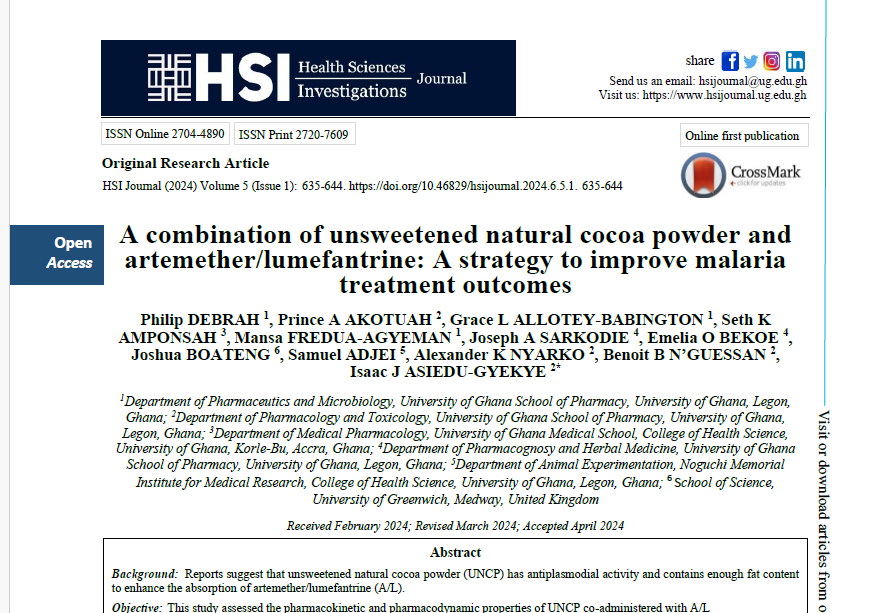A Combination of unsweetened natural cocoa powder and artemether/lumefantrine: A strategy to improve malaria treatment outcomes.
cocoa and artemether/lumefantrine
Abstract
Background: Reports suggest that unsweetened natural cocoa powder (UNCP) has antiplasmodial activity and contains enough fat content to enhance the absorption of artemether/lumefantrine (A/L).
Objective: This study assessed the pharmacokinetic and pharmacodynamic properties of UNCP co-administered with A/L.
Methods: Male Sprague-Dawley (SD) rats were infected with A/L-sensitive Plasmodium berghei. Rane’s curative model was used to assess the effect of the excipient UNCP (300 - 1500 mg/kg) formulated with A/L on parasite clearance. Additionally, healthy non-malarious male SD rats were co-administered orally with the fixed doses of A/L (recommended therapeutic dose of 2 mg/kg artemether and 12 mg/kg lumefantrine) with varying doses of UNCP (300, 600, 900, 1200 and 1500 mg/kg), to assess the effect of UNCP on the disposition of A/L.
The number of mice in each group that were given each dose was five (n = 5). Plasma lumefantrine concentration was assayed using HPLC/UV-Vis.
Results: Co-administration of UNCP (1200 and 1500 mg/kg) with A/L caused a significant difference in parasite clearance compared to conventional A/L (Coartem®-only) or UNCP alone. Pharmacokinetic analysis showed that the peak serum concentration (Cmax) of lumefantrine for the A/L+UNCP (1200 mg/kg and 1500 mg/kg) was higher than the Coartem®-only group. Additionally, the area under the lumefantrine concentration-time curve (AUC0→24) post-drug administration was higher for the A/L+UNCP (1200 mg/kg and 1500 mg/kg) groups compared to the commercially obtained conventional A/L Coartem®-only group.
Conclusion: UNCP, co-administered with A/L, increased the in vivo antiplasmodial activity of A/L enhanced lumefantrine disposition (peak concentration and total drug exposure) in rats. Thus, it can be exploited as an excipient in the formulation of A/L for the management of uncomplicated malaria in humans.


